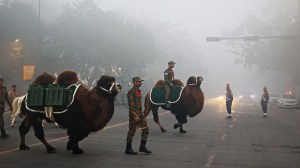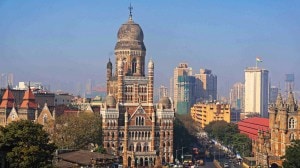Learning about barriers
Delhi's elites seem to be rapidly losing their sense of the over-hyped 8220;feel good factor8221;. This is a consequence of a Delhi High C...

Delhi8217;s elites seem to be rapidly losing their sense of the over-hyped 8220;feel good factor8221;. This is a consequence of a Delhi High Court order issued on January 20. The order directed the authorities to ensure that the unaided recognised private schools provide 8220;admission to the students belonging to weaker sections to the extent of 25 per cent and grant free-ships to them8221;, as per the condition in the allotment letter through which they received public land either at concessional rates or free of cost.
Some analysts say the order is historic. Looked at from another angle, it appears quite routine as all it does is to direct the authorities to merely enforce the conditions in an allotment letter. There are three erring parties 8212; the Directorate of Education that neither kept track of violations nor made the required rules, the Delhi Development Authority DDA which did not take penal action for breach of condition, and the private schools which lacked the morality of voluntarily fulfilling the condition. It is this issue of morality that makes the court order historic. The ethics of globalisation have altered the sense of morality India had inherited from the freedom struggle, as also enshrined in the Constitution in the principles of equality, justice and democracy. In the globalised 8220;morality8221;, it has become fair for the powerful to further deprive the masses in the name of 8220;free choice8221; 8212; free choice for the few and zero choice for the masses. This context is what makes the court8217;s order a historic moral reminder of national significance.
Four sets of spurious arguments have been offered against the order. First, children from weaker sections will feel 8220;completely lost and alienated in a public school8221;. This is virtually an admission that private schools do not promote values of equality, social justice and human dignity. If inculcation of such values is not the goal of these schools, one wonders whether they are imparting education at all. At least, not according to Phule, Tagore, Gandhi or Sri Aurobindo! A private school principal claimed the presence of an underprivileged child in a private school 8220;can be very damaging to his psyche8221;. The principal apparently does not realise that the very existence of such exclusive schools might be 8220;damaging the psyche8221; of crores of India8217;s children, thereby institutionalising socio-political tensions for generations to come.
The second argument is about the presumed inability of the underprivileged child to compete with privileged children. There is no research that establishes the inherent superiority of the privileged child over the underprivileged one. In fact, the available evidence demonstrates that the underprivileged child can learn just as well as any other child, provided an appropriate learning environment is ensured. For years, the Navodaya Vidyalaya system, catering to the rural underprivileged, has produced results in CBSE exams that excel the private schools8217;. The Delhi Government school results, too, have been steadily improving, without even adopting the practice of 8220;brutal8221; screening before admissions or at the pre-Board stage. Several government schools produced 100 per cent results last year.
It is also being contended that if the order is implemented, the government classrooms will not have enough students left. Let us get some statistics right. No more than 30 per cent of Delhi8217;s children study in unaided recognised schools. Also, almost 40 per cent of Delhi8217;s children in the 6-14 age group are out of school. Let the benefit of free-ships in private schools go to this section on a priority basis.
The last argument is about the lack of finance. There are three simple ways to deal with this issue. One, private schools should stop being extravagant in their extracurricular activities and infrastructural facilities. Two, hike the fees. It will only mean lower consumption of cold drinks, pizzas or ice creams at home or less frequent vacations abroad! Third, the government can help build a special fund for the children on free ships by contributing money equal to what it spends per child/year. This fund can be used to meet the cost of uniforms, stationery, books and other contingencies.
Some private schools offer the lame excuse that they are already serving the underprivileged by organising afternoon centres for such children in their premises. A perceptive IAS officer has aptly described these patronising gestures as 8220;excellence in the forenoon, equity in the afternoon8221;!
Apart from land, the government extends additional subsidies to private societies by a exempting their income and donations from income tax; b providing highly subsidised professional teacher training in Delhi University, a B.Ed. costs the government more than Rs 1 lakh; and c duly recognising their schools, syllabi and examinations through government-subsidised CBSE or State Boards of Examinations operating with NCERT/SCERT academic support. Yet, such schools have been allowed to go scot free without fulfilling their constitutional obligations.
The crisis was foreseen by the Kothari Education Commission 1964-66 which recommended the Common School System with genuine neighbourhood schools as the National System of Education. The most critical feature of a Common School System is equitable not uniform quality of education for all types of schools. Parliament has expressed its unambiguous commitment to the Common School System thrice in its resolutions on the National Policy on Education in 1968, 1986 and 1992. Yet, the concept could not be translated into practice because the political leadership and bureaucracy at all levels along with the intelligentsia found an escape route for their own children viz. the private school system. The only ethical option available to the private school lobby is to creatively evolve ways of ensuring a welcoming and socially harmonising environment. There is one last option. Return the land to the DDA with interest plus cost for breach of condition; the cost will include penalty for misuse of public property all these years. Surely, this would be in keeping with the ethics of the 8220;free market8221;!
To be sure, the High Court order is no substitute for the Common School System. What is needed is a national policy and unambiguous political resolve to transform the access as well as quality of mainstream government school education. When that happens, such harsh moral reminders from the judiciary will become superfluous.
The writer is professor of education at the University of Delhi
- 01
- 02
- 03
- 04
- 05































